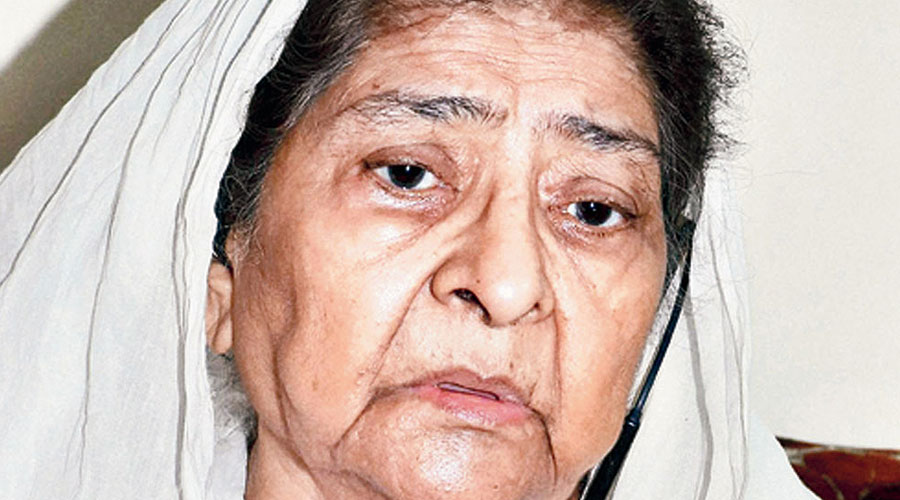Zakia Jafri, wife of slain Congress leader Ehsan Jafri, has told the Supreme Court that those responsible for the 2002 post-Godhra riots must be punished even if the incident is nearly two decades old, accusing the public prosecutors and defence lawyers of “collaborating” to ensure a clean chit for many of the accused.
Continuing his arguments for the fifth day, senior advocate Kapil Sibal, appearing for Zakia, told a bench headed by Justice A.M. Khanwilkar that the accused cannot be allowed to go scot free merely because of passage of time.
Sibal assailed the apex court-appointed special investigation team’s alleged failure to act on evidence, including that presented by the National Human Rights Commission (NHRC). “No democracy can accept it. No court can countenance it. The message has to go (out), even if it is after a long time. Otherwise, it will send a message that whatever we do… anything we want, nothing will happen to us,” Sibal told the bench that included Justices Dinesh Maheshwari and C.T. Kumar.
The court was dealing with a special leave petition filed by Zakia challenging the clean chit given to then Gujarat chief minister Narendra Modi and others by the R.K. Raghavan-headed SIT in the Gulbarg Society massacre in which Ehsan Jafri died.
The SIT had filed a closure report dated February 8, 2012, before the 11th metropolitan magistrate of Ahmedabad, which was accepted by the trial court on December 26, 2013. The trial court’s order was upheld by Gujarat High Court, after which Zakia moved the Supreme Court.
Sibal referred to purported taped conversations of Dilip Trivedi, a special public prosecutor in many Gujarat riots-related matters, boasting about “managing the cases”.
Sibal alleged that the prosecution had collaborated with the defence and the accused, as a result of which hundreds of accused had got acquitted.
“If the defence collaborated with the PP, then why have a prosecution? When I said collaborated, it was in this sense. He (Trivedi) is a PP and he is telling the accused whom to engage. He is getting lawyers for the accused, coordinating with other PPs. This is a farce of an investigation and what was the SIT doing?” Sibal asked.
“There was glaring evidence of collaboration. The political class became collaborators. This is the startling story of collaboration with the accused,” he submitted.
However, Justice Khanwilkar pointed out that there were a number of cases where the accused had been convicted on the basis of the investigations conducted by the SIT.
“You are attacking the manner of investigation done by the SIT. It is the same SIT that had filed chargesheets in other cases and they were convicted. No such grievance in those proceedings. If it was an allegation against the police personnel then one can understand…. How can you say such things about the SIT appointed by court? Collaboration is a strong term for an SIT constituted by court,” the bench said.
Sibal argued that the SIT had knowledge of the Tehelka sting tapes and their authentication by the CBI, which was upheld by Gujarat High Court. Yet the trial court did not rely on the tapes in the Gulbarg Society case, he said.
The senior counsel said the SIT did not record the statements of the NHRC or its members despite the commission expressing grave concern over the violence in Gujarat.
The NHRC had also given a sealed-cover report relating to the communal strife, which too was ignored by the SIT, according to Sibal. He said mobs carrying mobile phones had moved around in hordes, singling out houses for attacks. Yet the SIT did not seize even a single cellphone and those arrested were immediately released on bail, Sibal alleged.
“Even when complaints were made, the names of the offenders were not noted. This shows collaboration of the various machineries of the state…. In almost all cases, copies of FIRs were not given. In some cases, FIRs were not recorded and victims were harassed. These are grave matters not to be forgiven or forgotten,” Sibal said.










